Q&A: SIMON MAINWARING – Author, WE FIRST
Written on November 30th, 2011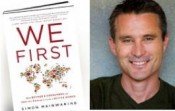 |
Aired 11/27/11
At a time when social media is being utilized to coordinate protests against the domination of our economy, our government, and our society by corporations and the very wealthy individuals who profit most from them, SIMON MAINWARING sees a hopeful path to save society from capitalism’s worst excesses. http://wefirstseminar.com/
A social media expert with global experience with brands such as Nike, Toyota and Motorola- he offers a new brand model in which they leverage social media to earn consumer goodwill, loyalty and profit, while promoting sustainable social change through contributions from customer purchases.
The goal of We First is a sustainable practice of capitalism. It is based on the belief that selfish Me First thinking hurts our businesses and the lives of millions of people around the world. It asserts that a brighter future depends on an integration of profit and purpose within the private sector. To achieve this, companies and customers must become partners in social change to build a better world.
Could such innovative partnerships (with shared goals) practice capitalism in a way that satisfies the need for both profit and a healthy, sustainable planet? How realistic is his vision at a time when greed keeps consolidating gains? How much difference could it make even if successful? What has MAINWARING seen in working with these brands that makes him talk about his vision as a likely alternative?
Q&A: MARIA ARMOUDIAN, Journalist/Radio Host
Written on August 12th, 2011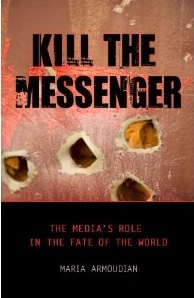 |
Aired 08/08/11
KILL THE MESSENGER emerged from MARIA ARMOUDIAN's studies into the causes of genocide, war, peacemaking, democratization, and the protection of human rights and the environment, while she was working on her Ph.D. at the University of Southern California, as well as during her work as a broadcast journalist and public official. Looking across conflicts and policy successes and failures, she found that media (and media professionals) were among key factors in determining political outcomes, including matters of life and death.
Written in five parts, KILL THE MESSENGER shows how media fomented rage and genocide in Rwanda, the Holocaust and the Bosnian war; how they helped bring peace in the Northern Ireland Conflict and the war in Burundi; how media contributed to democratization and the protection of human rights in South Africa, Taiwan, Mexico, and Senegal, and how they aided both the destruction and rebuilding of democracy in Chile. In its final case study, Kill the Messenger explores the media's role in the fate of the world, as journalists disentangle the issue of climate change for the public.
The book's forward was written by Tom Hayden.
SPECIAL: Terrence fill in hosts on KCRW
Written on July 27th, 2011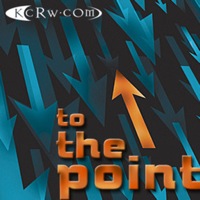 |
Aired 07/25/11
Terrence fills in on the air for Warren Olney - "To the Point" on 89.9 KCRW Santa Monica and KCRW.com
As the markets and the public look on nervously, the clock continues to tick on negotiations to raise the federal debt ceiling. As leaders from both parties develop separate plans, one of the contested issues is the length of any extension. President Obama and the Democrats want to put the issue to rest till after the 2012 election, while the Republicans want to keep the government on a shorter leash. Also, more details on the Oslo shooter's mentality, and wedding bells ring in gay Manhattan.
Q&A: GRETCHEN MORGENSON – 2002 Pulitzer Prize winner
Written on July 3rd, 2011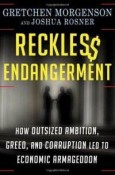 |
Aired 06/26/11
GRETCHEN MORGENSON was awarded the Pulitzer Prize in 2002 for her "trenchant and incisive" coverage of Wall Street. She has been on that beat ever since and now has a book on the recent meltdown. Though we've had in depth conversations with Michael Lewis, Joseph Stiglitz, Simon Johnson, William Greider and others about the crisis, it's been a while since we covered it, and so this week we will have a chance to get an update on where things stand and look at some of the implications.
RECKLESS ENDANGERMENT lays out how the financial meltdown resulted from the toxic interplay of Washington, Wall Street, and corrupt mortgage lenders. It reveals how the watchdogs who were supposed to protect us from financial harm were actually complicit in creating the financial crisis, and focuses on the abuse of Fannie May and Freddie Mac.
http://www.nytimes.com/
Q&A: DIANE RAVITCH, Author
Written on September 18th, 2010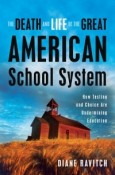 |
Aired 09/12/10
DIANE RAVITCH
author,
DEATH AND LIFE OF THE GREAT AMERICAN SCHOOL SYSTEM
How Testing and Choice Are
Undermining Education
VICKI ABELES
producer-director,
RACE TO NOWHERE
ENRIQUE GONZALEZ
Principal, BIG PICTURE Schools
http://www.dianeravitch.com/
http://www.racetonowhere.com/
http://www.bigpicture.org/
http://www.fkhs.org/
